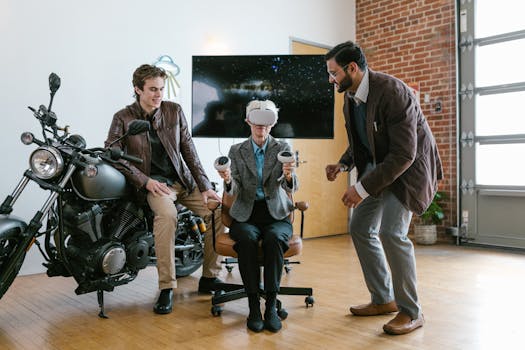
“`html
Introduction
Technological innovations are revolutionizing our world and shaping the future. As we approach 2025, several emerging technologies are poised to have a significant impact on various sectors, including healthcare, education, and transportation. In this article, we will explore the key innovations that are expected to transform our lives and industries in the coming years.
Artificial Intelligence and Machine Learning
Artificial Intelligence (AI) and Machine Learning (ML) are at the forefront of technological advancements. These technologies are being integrated into various applications, enhancing efficiency and decision-making processes. In 2025, we will see AI playing a crucial role in healthcare, with predictive analytics improving patient outcomes and personalized medicine becoming the norm.
Moreover, AI-driven automation will revolutionize industries, leading to increased productivity and the creation of new job opportunities. Machine learning algorithms will continue to evolve, providing deeper insights from data that can drive strategic business decisions.
5G and Connectivity
The rollout of 5G technology is expected to bring about a new era of connectivity. With faster speeds and lower latency, 5G will enable the widespread adoption of the Internet of Things (IoT). By 2025, smart cities equipped with interconnected devices will enhance urban living through improved traffic management, energy efficiency, and public safety.
Additionally, 5G will facilitate advancements in telemedicine, allowing healthcare providers to offer remote consultations and real-time monitoring of patients, thus improving access to healthcare services.
Blockchain and Decentralized Systems
Blockchain technology is not just about cryptocurrencies; it has the potential to revolutionize various sectors by providing secure and transparent transaction methods. In 2025, we can expect blockchain to be widely adopted in supply chain management, ensuring traceability and authenticity of products.
Furthermore, decentralized finance (DeFi) platforms will challenge traditional banking systems, allowing individuals to have more control over their financial assets and transactions. This shift towards decentralization will promote greater financial inclusion globally.
Conclusion
As we look towards 2025, it is clear that technological innovations will continue to shape our world in profound ways. From AI and 5G to blockchain, these advancements will not only enhance our daily lives but also drive economic growth and improve societal outcomes. Embracing these technologies will be essential for individuals and businesses alike to thrive in an increasingly digital future.
“`






